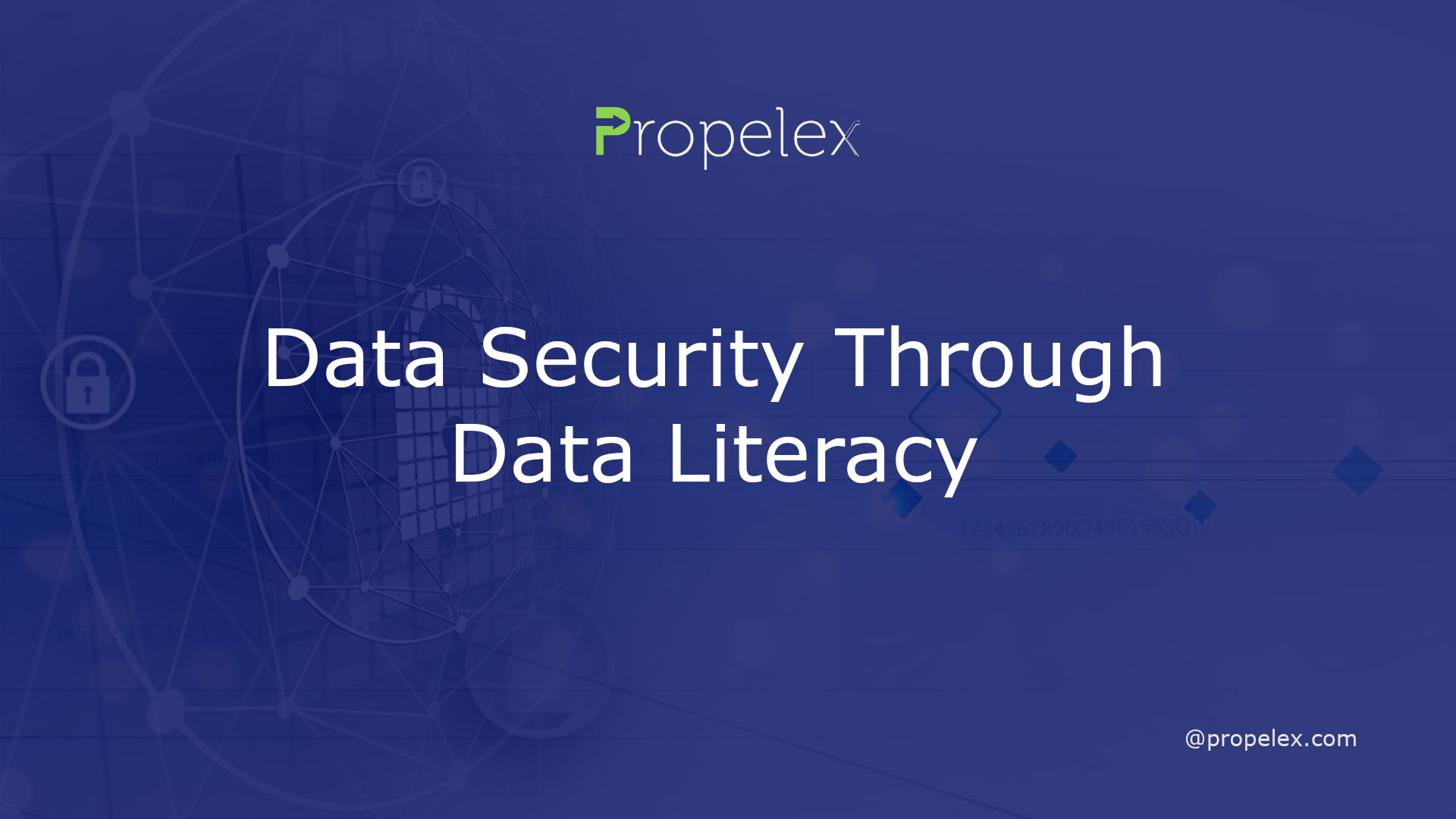Unlocking data security through data literacy. Explore the pivotal role of understanding data in fortifying cybersecurity measures. Data is now pervasive, and it is important for people to understand how to work with this information. They need to be able to interpret and use it, as well as manage and share it.
Companies that prioritize data literacy can boost their competitive advantage with faster decision-making and increased productivity. They can also gain better insights into their customers.
Accuracy
Data literacy is an important skill to have in the workplace. It allows you to make informed decisions based on facts and figures, which can help you improve productivity and boost business success. It also enables you to understand your customers’ needs and wants, which can help you create a better customer experience. This can help you stay ahead of the competition and increase sales.
The first step in becoming data literate is understanding the different types of data and how to interpret them. This includes knowing what information to look for, how to identify potential errors in data, and how to use it to make informed decisions. In addition, it is important to understand how to use data visualization tools to present data in a way that is easy to understand.
Another important aspect of data literacy is understanding how to use the data you have collected to achieve your goals. For example, if you are a marketing company, you can use data to analyze customer trends and patterns to better understand your target market. You can then use this information to develop a more effective marketing strategy.
It is also essential to be able to read and interpret graphs, charts, and other visual data. This can help you identify patterns and trends in the data that may indicate a potential problem. You should also be able to identify the source of the data and determine whether it is reliable or not.
There are many barriers to achieving data literacy. These include a lack of data skills and knowledge, a gap in knowledge between employees, and siloed data. In order to overcome these challenges, companies should establish a clear data literacy framework and provide training for all employees.
Data literacy is an essential skill for the future, and it is vital that everyone is on board with the changes that are taking place. By ensuring that all employees are data literate, businesses can make the most of their data and gain a competitive advantage.
If you are interested in learning more about the importance of data literacy, check out my new book, Future Skills: The 20 Skills & Competencies Everyone Needs To Succeed In A Digital World. This book outlines why these skills are so critical and provides practical advice on how to acquire them.
Confidentiality
Data is a valuable asset, but it’s also confidential information that needs to be treated as such. This is why it’s important to have a team of people who can understand and handle your information with the care and discretion it requires. Data literacy skills enable employees to read, analyze, and interpret data in a way that protects its confidentiality. This can help to prevent sensitive information from falling into the wrong hands, which can be devastating for an organization’s reputation and bottom line.
As more data becomes available, companies are increasingly relying on this information to make critical business decisions. However, many employees are not data literate, which can lead to inaccurate, incomplete, and biased decision-making. By increasing the number of people who are data literate, organizations can ensure that their decision-making processes are accurate and informed.
To improve their data-driven culture, organizations must invest in training and education for all of their employees. This can include workshops, courses, and online resources that teach employees the skills needed to collect, process, and analyze data. It is also important to consider the individual perspectives, backgrounds, and responsibilities of each employee when developing an educational program. This will help to ensure that the skills learned are relevant and applicable to their specific roles and responsibilities.
In addition, it is important to communicate the value of data-driven decision-making to employees. This will encourage them to use data more frequently and help them identify potential issues that could impact the organization’s success. Additionally, it will allow them to collaborate more effectively across departments and teams.
Forrester research reveals that organizations that have high levels of data literacy are more than 8.5 times more likely to grow their annual revenue than those that don’t. However, a company’s data literacy efforts will be in vain if it does not have a strong foundation of effective data governance practices in place.
To increase data literacy, companies must focus on both education and governance. Data and analytics leaders must lead the way by encouraging their teams to speak “data” in meetings and other business situations, and they should champion a data-driven culture throughout the organization. They must also create a data governance framework that defines the roles and responsibilities of each team and department, as well as the policies and procedures for accessing, sharing, and protecting data.
Integrity
As with any skill, data literacy requires ongoing training. It also needs to be assessed on a regular basis to ensure that employees have the right knowledge and skills to perform their jobs properly. There are a number of different ways to measure data literacy, from self-assessment tools to objective measures. However, the most important factor is to have a framework to guide the measurement process and the creation of data literacy assessments.
A framework defines the skills and competencies that are necessary for data literacy. The frameworks differ slightly, but they all include, at a minimum, the ability to access and manipulate data, evaluate its quality, understand and communicate data, and (in most of the frameworks) use it ethically.
There are many benefits of data literacy, from creating a more data-driven culture to improving the performance of businesses. In fact, a recent study cited by Dataversity found that companies with a high level of data literacy saw a three to five percent increase in enterprise value.
Data literate teams are critical for a company to achieve its goals and meet customer needs. They need to be able to recognize the most relevant data, gain insight into customer behavior and use that data to improve the user experience, all while maintaining compliance with standards and policies that protect confidential information.
A company may want to create personalized customer experiences on its website, but it must be able to identify the correct data sets to use and make sure the data is protected from misuse. It also must be able to communicate these insights to its customers in a way that is easy for them to understand.
As a result, it is essential for an organization to have a comprehensive data governance program in place to support and extend its data literacy efforts. Data stewards can help deploy and extend these programs, with the aid of data science and analytic teams that deliver insight to other departments. They can also review and revise the data policies as the data landscape evolves, ensuring that data is always being used appropriately and securely.
Sharing
Data literacy is the ability to source, interpret and communicate data. It enables an organization to use data effectively to drive desired business outcomes. Organizations with higher levels of data literacy are more competitive, agile and innovative. According to the Data Literacy Project, organizations with greater data literacy can generate $320-$534 million more in enterprise value than those with lower levels of data literacy.
Achieving data literacy requires that an individual understand and speak the language of data. To achieve this, an individual must be able to identify and describe real-life common business data use cases as well as a specific data use case unique to their own workplace. This understanding allows an employee to confidently ask questions and understand the answers provided in a data-driven way.
Creating an effective and sustainable data-literate culture requires leadership, culture, behaviors and actions throughout the entire organization. It’s not enough to simply train a few dedicated data experts and business intelligence professionals. The whole organization needs to become data-literate in order for businesses to remain competitive and compliant.
Forrester’s 2022 Data and Analytics Survey indicates that 51% of data and analytics decision-makers have implemented or are expanding their company-wide data literacy programs. However, for this initiative to be successful, a comprehensive program must include data governance training as part of the curriculum.
Herrington suggests that this connection between data literacy and data privacy is critical to building trust in the new world of GDPR compliance. He explains that the more informed an employee is about the data that they are accessing, the more they will be able to trust it. He uses the example of two people competing in a fantasy football league, where one person understands the state and historical data of players’ performance. He claims that the person with this knowledge will have a much better chance of selecting the winning player.
A comprehensive training program for data literate employees must incorporate learning goals based on research. For instance, Brooklyn Public Library (BPL) has been using an online course created by the nonprofit Organizational Data Institute that focuses on teaching participants to research and evaluate data sources. This is a critical component of data literacy because it teaches individuals how to avoid common errors and missteps when evaluating data, which can impact the accuracy of their conclusions.









